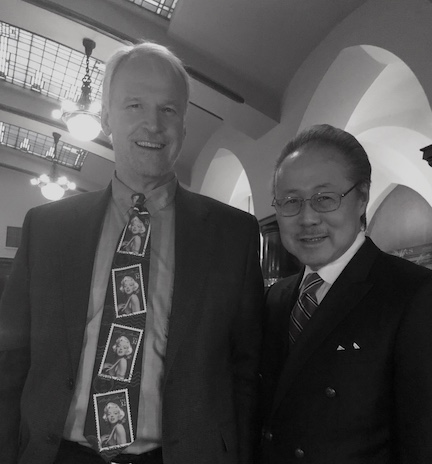
Panhandling is an urban characteristic that brings diverse emotions.
For some, the response it, “Don’t talk to me.”
Followed by, “Don’t make your problem my problem.”
The reverse: “I don’t have change, but please take this ten dollar bill.”
The response is different with the roles reversed.
I asked my wife if she’d ever begged strangers for money. She said only as a joke, which I heard as, “No, I haven’t done any panhandling.”
We were in the car for a covid19 quarantine drive working through conversations that didn’t devolve into finding blame for things not my, or our, fault.
How did panhandling even come up? We had cruised Hwy99 south out of Tigard toward Newberg, then hung a left toward St. Paul. It was two lanes that narrowed down like a country road.
The tank was full of gas, so getting lost was part of the drive. Wandering around the hills of western Oregon was a vision in green, green, green, and a green vision was the goal.
We passed a golf course on the left in the rolling hills, Chehalem Glenn Golf Course, that seemed to fit in.
I drove past, waiting for the return question. Silence was nice, but it broke.
“Have you ever done any panhandling,” she asked?
I took a deep breath and took off.
I lived in South Philadelphia during my Army days, a medic in a civil service clinic. Like most things Army, it was assbackwards: I was assigned to permanent temporary duty.
But it was Philadelphia in the mid-70’s and I explored the city. I once walked the road from Center City to my place near Oregon Ave. After a few tense exchanges with the local Welcome Wagon along the way, I decided I’d explored that trail enough.
I was downtown one weekend afternoon and decided to see The Exorcist in a big theater on Market St. I had enough money left over after buying a movie ticket for my bus fare home.
During the movie I twitched around enough for my bus change to fall out of my pocket and drop to the floor. It was dark and sticky, so it was lost for good.
The movie was creepy as hell, but afterward I had a problem. I wasn’t hiking home; I’d already done that.
Since I liked walking around downtown, I’d been hit up by guys panhandling. Sometimes I gave some money, sometimes I didn’t have any money.
I walked out of the theater with empty pockets. What to do? I decided to panhandle the panhandlers.
My bus stop was a couple of blocks away. I used the distance to ask anyone asking for money if they could spare some change.
I kept it simple with, “Hey man, can you spare some change?”
It didn’t go well. I was on unfamiliar turf, at least unfamiliar to me. It was turf the panhandlers worked, and I was trespassing.
The people I asked for money either gave me fair warning to stop, or they were a little too wasted to understand why anyone would ask them for money. So I changed my pitch.
“Hey man, spare change for booze and weed? You’re already there, and I’m trying to get there.”
Asking loaded derelicts for money didn’t work either. Where’s the solidarity?
Eventually it came to me. I needed to do my panhandling for purpose with people going my direction, and they were all at my bus stop.
With my best Mainline pronunciation and vocabulary I explained my problem and how they could help. I was a temporary fundraiser.
“Excuse me, I lost my bus money while I watched the Exorcist. It was so scary I jumped, and my money jumped out of my pocket. Could you help with bus fare? It’s not for drugs and alcohol.”
Why hit up people at the bus stop? Even if I didn’t make my fare for the coming bus, the next on the schedule would draw new donors.
Took me three busses stopping and leaving before I had enough change to step on the fourth.
Panhandling Lesson
A few years later I worked on the Portland Park Blocks below Portland State. I saw the same guys asking for money every day. I picked one guy to help, an older man with a decent pitch.
I started with quarters, then made him a deal: I’d give him a dollar every time I saw him if he wasn’t drunk.
He was drunk when I said that. I gave him a quarter, then pulled out a dollar.
“This is for you,” I said.
I folded it back in my pocket when he put his hand out.
“I’ll save it for you, so when I see you next time and you’re not loaded, it’s two dollars.”
I showed him two dollars, his hand came back out.
“This is for the sober version of you. If you want this money, hold off on the bottle a little longer.”
We hit it off for a few months. If he didn’t smell of booze, I gave him money. We didn’t notice others around us.
I saw him a few times when he didn’t get the dollar. The next time I have him four bucks. I told him I was proud of him.
The next time I saw him he was bruised and scabby and wouldn’t take the dollar. Some younger street guys saw me give him money and beat him up. Panhandlers mugged a panhandler, and my guy wasn’t going to take any more chances.
I saw him less and less, then not at all. Did he move on? Get treatment? Die?
All panhandlers are not created equal. My guy was trying to get by, but he was a target to others.
The Story
Asking for money, begging for money, and giving money are a part of the same picture.
Find where, or who, you’d like to help out, and find a way.
Whether family, friends, or complete strangers, try and respond to them in a way that doesn’t leave one of you feeling like a jackass.
Panhandling isn’t the worst request, and done correctly, it opens others to seeing needs they ignored. Instead of, “Not my problem,” find a way to be part of a solution.
Small parts added together make something big.
At least that’s what we agree on during our coronavirus roadie.


